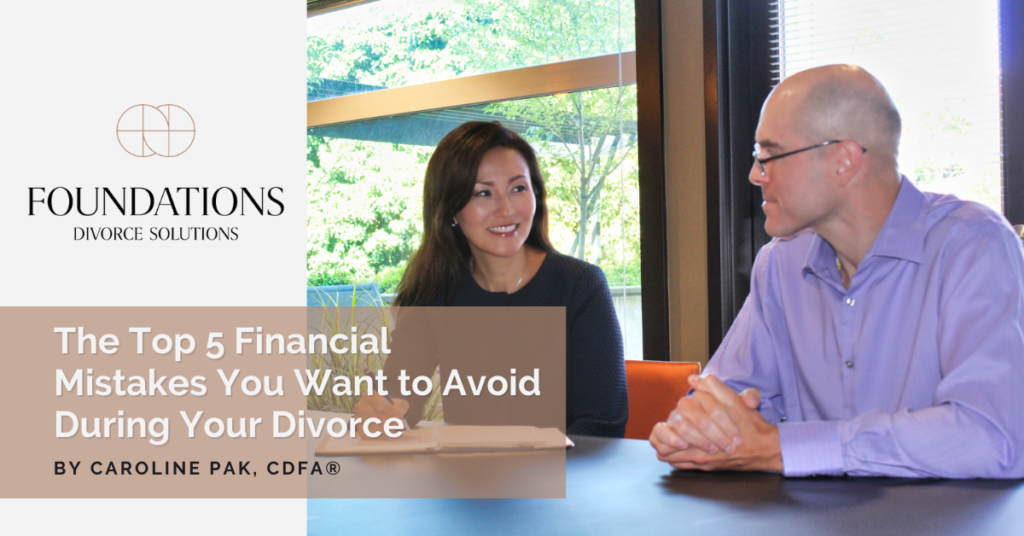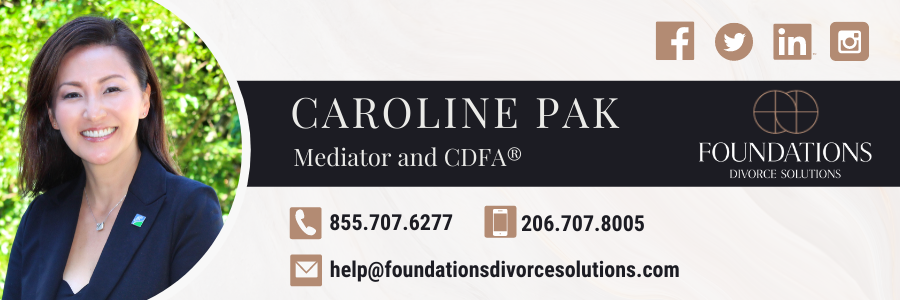For many couples, their divorce is a long, stressful, and tedious process. The end of a marriage means that assets, debts, and other issues need to be dealt with. This contributes to the stress of the divorce process. Many people cannot wait for their divorce to be finalized but rushing through it can have long-term financial implications.
Finding professional advice during the process can help you avoid making the following five mistakes:
1.) Not Understanding Your Expenses
You need a realistic budget to be able to know your exact expenses. Without it, you will not know exactly how much money you need each month to keep your lifestyle after the divorce. Creating a budget will make sure that you are not underestimating what you need to live.
2.) Not Being Comprehensive
If you decide your financial issues one by one, you won’t be able to negotiate a fair agreement. You need to have a comprehensive idea of your financial situation that includes every facet of your financial situation, including income and assets, taxes, capital gains, and losses.
3.) Not Taking Care of Unsecured Debt
If you and your spouse have debt, you might want to split up the financial responsibilities. However, the liability for unsecured debt that happens during a marriage is shared by both parties. If your ex does not pay with they should, you will be responsible for this debt, meaning a creditor can hold you responsible. The solution is to pay off unsecured debt prior to the divorce if possible.
4.) Not Evaluating a Defined Pension Fund
A defined benefit plan or pension fund is controlled by an employee’s employer. It pays an annuity income or lump sum when the individual retires. This plan differs from a 401K because it has value today, even though the employee does not get any money until retirement. The employee’s spouse is entitled to some part of that plan. A Certified Divorce Financial Analyst® (CDFA®) would be able to determine the defined benefit plan’s value so you know exactly the amount you should be asking for.
5.) Thinking Short-Term Only
Many times during a divorce, the focus is on alimony, child support, and how assets are divided today. The situation between an ex-couple might be very different in 5 or 10 years especially if there are young children who will be going to college. A financial planner will review long-term expectations and advise on how to best handle your divorce to prepare for your future.
These mistakes can affect your financial situation in the future. It is best to consult a professional to protect yourself and your financial future. An expert can help advise you about potential problems during and after your divorce.
Do I Need a Professional?
Some couples going through a divorce do not think professional advice is warranted because their assets do not justify the cost. But if you have any assets, retirement accounts, property, liabilities, or pensions, a professional can guide you through the process. The cost of one will be worth it to give you the financial security you need.
What Type of Professional Should I Hire?
There are several types of professionals that can help through the divorce process. A divorce lawyer is necessary to negotiate the divorce settlement and can represent you in court. A divorce attorney should be consulted in every case, except for a no-fault divorce with no assets or children. It is expensive to hire another professional in addition to the divorce lawyer, but a financial expert might be needed to determine the couple’s financial situation and how to best ensure financial security.
If there is a case where the financial situation is not forthcoming by one party, a forensic accountant should be employed. A forensic accountant can find hidden assets and determine if there has been any fraud. In the case where one spouse handles the finances, a forensic accountant will be able to audit and analyze documents so that each party gets what they are supposed to.
A forensic accountant is not needed if the assets and liabilities are not complicated. There are still financial implications that have to be handled. A CFDA® has knowledge that relates to asset distribution, tax law, and financial planning. A CFDA® can give you the entire picture of your finances and explain the tax implications of your divorce agreement. They can also create a budget that will help you after the divorce. They are also able to serve as a witness in court and provide supporting documentation as evidence.
Going through a divorce can be a very stressful and emotional process. It is important to understand exactly what you are entitled to and what your financial needs will be in the future. By avoiding these common financial mistakes, you will be in a better place financially after your divorce is settled.
Take Control of Your Future
When you consider divorce, or if you know someone who is contemplating divorce, one of the biggest realities for those in the divorce process is the financial settlement and financial analysis post-divorce. Get the assistance of Caroline Pak, a Mediator and Certified Divorce Financial Analyst® (CDFA®).
Caroline provides step-by-step guidance on matters related to divorce. With a wide range of experience and expertise related to divorce financial issues, Caroline will simplify the process and provide much-needed clarity in areas such as long-term tax consequences, asset and debt analysis, dividing pension plans, continued health care coverage, stock option elections, protecting support with life insurance, and much more.




